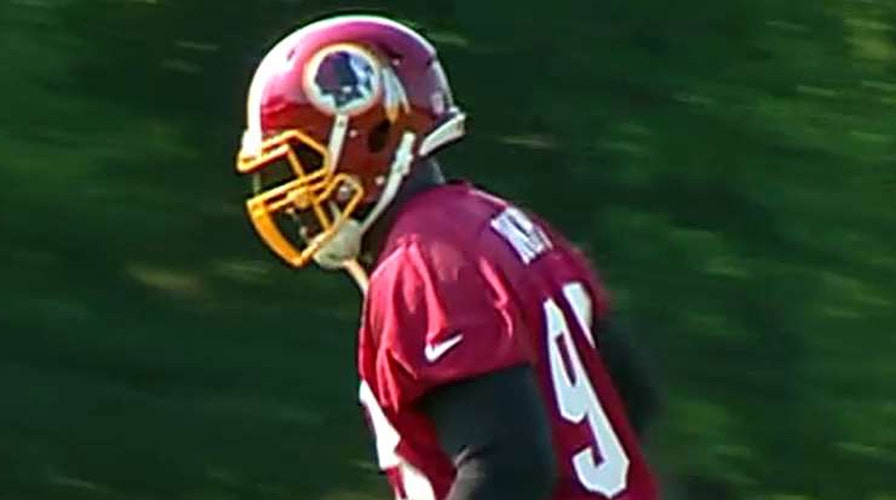Federal circuit court overturns ban on Redskins trademark
Latest development in decades-long legal battle over the football team's name
Washington Redskins owner Dan Snyder said Monday he's "thrilled" about the Supreme Court decision striking down a federal trademark law banning names the government deems offensive.
The court ruling came in a separate case brought by Oregon-based, Asian-American band The Slants, which had been denied a trademark because its name was considered disparaging. The court ruled Monday that the law is unconstitutional.
The decision has direct implications for the Redskins’ dispute with the same office – the U.S. Patent and Trademark Office, which canceled numerous trademarks for the team back in 2014 over allegations the name is insulting to Native Americans.
"The Supreme Court vindicated the team's position that the First Amendment blocks the government from denying or cancelling a trademark registration based on the government's opinion,” Redskins lawyer Lisa Blatt said in response to Monday’s ruling.
COURT RULES AGAINST TRADEMARK LAW
The NFL declined comment.
A federal judge earlier had upheld the trademark office’s cancellation of the team name, but the matter was on hold pending the outcome of the Slants’ case. The unanimous opinion the court delivered Monday is expected to set a positive precedent for the Redskins.
At issue in The Slants’ case was a law that prohibits registration of trademarks that “may disparage ... persons, living or dead, institutions, beliefs or national symbols.”
Slants founder Simon Tam said his goal was to reclaim a derisive slur and transform it into a badge of ethnic pride. But the trademark office said a term can be disparaging even when used in a positive light.
Justice Samuel Alito, in the court’s opinion, agreed with the band.
“The commercial market is well stocked with merchandise that disparages prominent figures and groups, and the line between commercial and non-commercial speech is not always clear, as this case illustrates. If affixing the commercial label permits the suppression of any speech that may lead to political or social ‘volatility,’ free speech would be endangered,” he wrote.
The Associated Press contributed to this report.













































